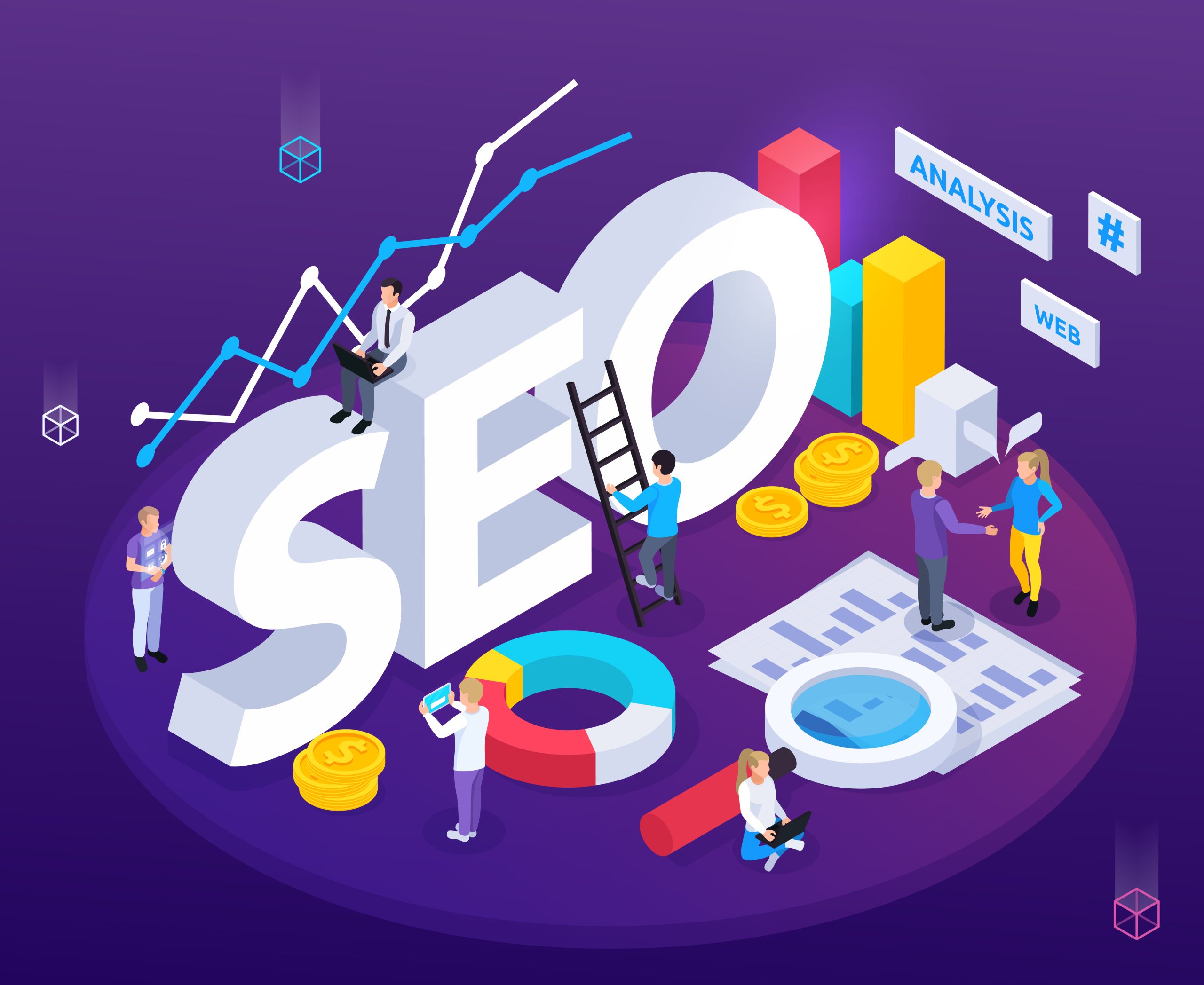Search Engine Optimization (SEO) is a critical component of digital marketing that focuses on improving the visibility of a site or a page in the search engine’s unpaid results—often referred to as “natural,” “organic,” or “earned” results. The underlying concept is that a website that appears higher or more often on a search engine’s results pages(SERP) is likely to attract more visitors from those who are searching. This increases the number of visitors to a site and presents an opportunity to convert them into customers.
The Influence of SEO on Digital Marketing:
1. Increased Visibility and Traffic
A well-executed SEO strategy can increase a website’s visibility in search engines for relevant queries. This leads to an increase in organic traffic, which is often high-quality traffic because it comes from users actively searching for information, products, or services that the business provides.
2. Credibility and Trust
Websites that appear higher in search results are often recognised as more credible and trustworthy by users. By optimising a website for search engines, a business can build its brand’s reputation and authority in its industry.
3. User Experience
SEO involves improving the website’s user experience (UX). This includes optimizing site speed, ensuring mobile-friendliness, creating an user-friendly structure, and providing high-quality content. A better user experience can lead to higher engagement, lower bounce rates, and increased conversions.
4. Cost-Effectiveness
Compared to paid ads, SEO is relatively cost-effective. It provides a long-term foundation for online presence and doesn’t require continuous funding to maintain traffic levels, as the case with pay-per-click (PPC) ads.
5. Competitive Edge
A strong SEO presence can help a business perform better than their competitors. If two businesses are selling a similar product, the one with better search engine visibility is more likely to attract potential customers.
6. Integration with Other Marketing Strategies
SEO data provides valuable insights into customer behaviour and trends. This information can be used to inform other digital marketing strategies, such as content marketing, social media marketing, and PPC campaigns.
7. Local Engagement and Conversion
Local SEO strategies help businesses appear in local search results, which is important for companies that rely on local clients. By optimising for local search, businesses can increase their local visibility and attract more traffic in their physical locations.
8. Long-Term Strategy
While SEO takes time to yield results, it is a long-term strategy that can provide sustainable advantages. Unlike paid ads, which stop generating traffic the moment the campaign ends, a solid SEO strategy can ensure consistent organic traffic.
Key Components of a Successful SEO Strategy:
1. Keyword Research
Identifying the terms and phrases that potential customers use to search for products or services. This involves understanding the search volume, competition, and relevance of these keywords to the business.
2. On-Page Optimization
Enhancing individual web pages to rank higher and earn more relevant traffic. This includes optimising title tags, meta descriptions, header tags, and images, as well as ensuring the content is high quality and relevant to the target keywords.
3. Content Creation
Developing informative, engaging, and keyword-rich content that satisfies user intent and encourages longer interactions and visitors to return.
4.Link Building
Acquiring high-quality backlinks from reputable websites to boost the domain’s authority and credibility.
5. Technical SEO
Improving the technical aspects of a website, such as its performance, mobile-friendliness, architecture, and indexability, helps search engine bots crawl and index the site more effectively.
6. Local SEO
Optimising for local search results by claiming and verifying local listings, getting local citations, and managing reviews and ratings.
7. Analytics and Reporting
Using tools like Google Analytics to track the performance of SEO efforts, monitor traffic, analyse user behaviour, and make data-driven decisions to refine the strategy.
8. Google Maps Optimization
For local businesses, being visible on Google Maps is crucial. This involves ensuring the business profile is complete, accurate, and optimised for relevant local searches.
Conclusion
In digital marketing, SEO is not just an option but a necessary component for any business that wishes to thrive online. It’s a comprehensive approach that touches upon every aspect of a website, from its technical foundation to the user experience and content strategy. SEO is integral to a digital marketing plan because it builds the groundwork for a website’s visibility, which is essential for driving organic traffic and ultimately achieving the business’s marketing and sales goals.
Also Read: How To Improve Cumulative Layout Shift (CLS) On WordPress?

